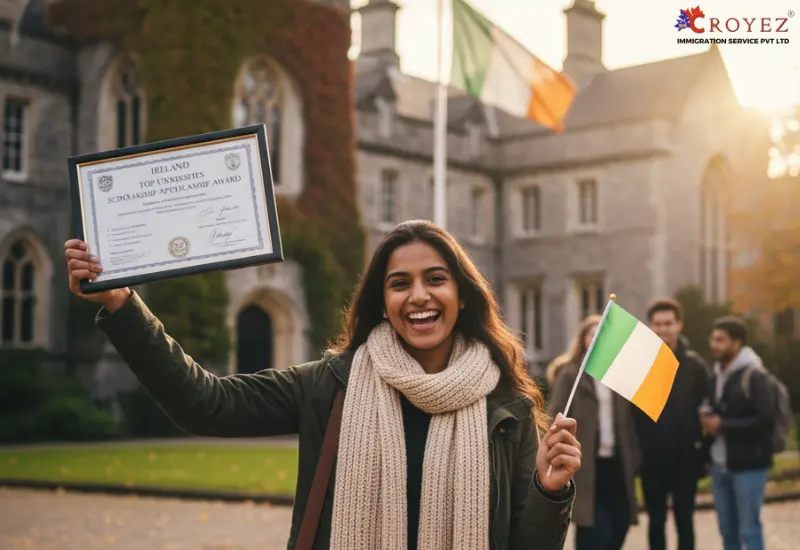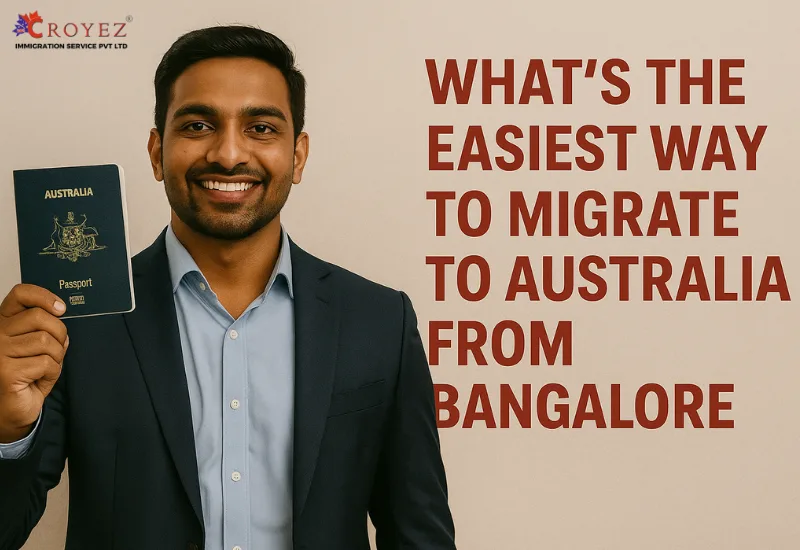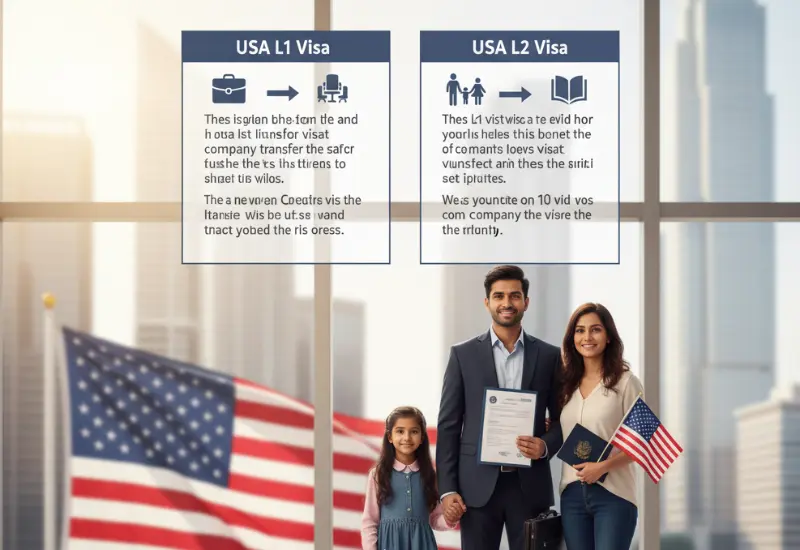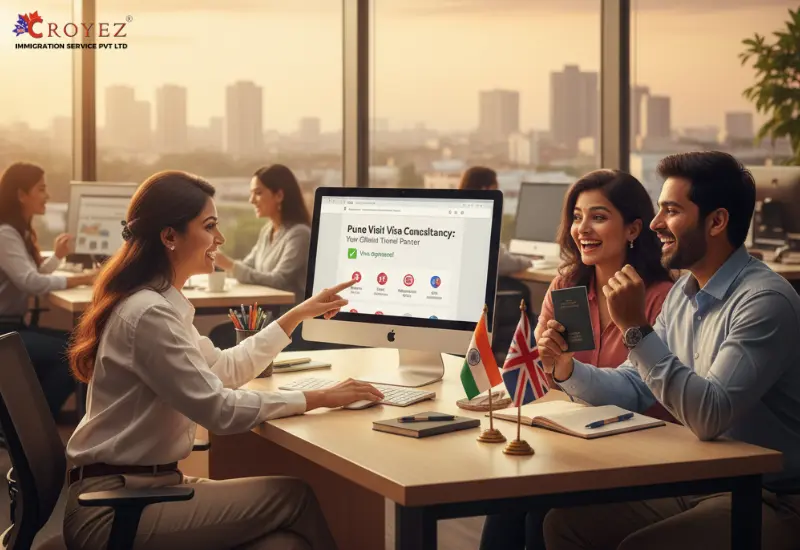Preparing for a UK Embassy Interview for a student visa can be a nerve-wracking experience, especially if it's your first time. However, with proper preparation and understanding of what to expect, you can increase your chances of success. This guide aims to provide you with valuable insights and tips to help you manage the interview process smoothly. Whether you're planning to migrate to the UK from India or any other country, the information provided here will be beneficial for you.
Before the Interview:
Preparation is key to success in any interview, and the UK Embassy interview for a student visa is no exception. Here are some essential steps to take before your scheduled interview:
- Research: Familiarize yourself with the visa application process and requirements. Understand the specific documents you need to submit and ensure they are in order.
- Practice: Practice answering common UK embassy interview questions and answers for student visas. This will help you articulate your responses clearly and confidently during the actual interview.
- Gather Documents: Collect all necessary documents, including your passport, acceptance letter from a UK university, financial statements, and any other relevant paperwork.
- Review Your Application: Go through your visa application thoroughly to ensure accuracy and consistency in your answers during the interview.
- Arrive Early: Plan to arrive at the embassy well before your scheduled interview time to avoid any last-minute rush.
Frequently Asked Questions and Sample Answers:
The UK Embassy interview for a student visa often involves probing questions aimed at understanding the applicant's motivations, plans and preparedness for studying in the UK. Among these inquiries, several recurring themes emerge, such as reasons for choosing the UK, selecting a specific university, future career plans, financing studies, and intentions regarding work during or after studies. Let's delve deeper into each of these questions and explore sample answers that applicants can use to effectively communicate their thoughts and intentions.
1. Why did you choose to study in the UK?
This question seeks to uncover the applicant's rationale for pursuing education in the UK over other potential destinations. Sample Answer: "I chose to study in the UK because of its renowned universities and high-quality education system. The UK offers a diverse range of courses taught by industry experts and obtaining a degree from a UK university will enhance my career prospects globally." This response emphasizes the UK's reputation for academic excellence and the opportunities it offers for personal and professional growth.
2. Why did you select this particular university?
Here, the interviewer aims to understand why the applicant specifically chose the university they applied to among numerous options. Sample Answer: "I came across this university while researching institutions known for excellence in my field of study. The university's strong reputation, facilities and opportunities for research align perfectly with my academic and career goals." This response highlights the applicant's thorough research and the university's suitability for their academic aspirations. [cta_shortcode]
3. What are your future career plans?
This question delves into the applicant's long-term goals and aspirations post-graduation. Sample Answer: "After completing my studies in the UK, I plan to return to India equipped with valuable knowledge and skills gained from my degree. I aspire to contribute to my field and pursue opportunities that will allow me to make a meaningful impact." This response demonstrates the applicant's intention to apply their education for the betterment of their home country, showcasing a sense of responsibility and purpose.
4. How will you finance your studies in the UK?
Financial preparedness is crucial for studying abroad, and this question seeks clarity on the applicant's funding sources. Sample Answer: "I have secured funding for my studies through a combination of personal savings, scholarships and financial support from my family. I have carefully budgeted for tuition fees, accommodation and living expenses to ensure a comfortable stay in the UK." This response highlights the applicant's proactive approach to financial planning and their ability to manage resources effectively.
5. Do you intend to work in the UK during or after your studies?
The interviewer wants to gauge the applicant's intentions regarding employment opportunities in the UK. Sample Answer: "While my primary focus will be on my studies, I am aware of the restrictions regarding work on a student visa. I plan to abide by the regulations and explore opportunities for internships or part-time work that complement my academic pursuits." This response reflects the applicant's commitment to their studies while acknowledging the potential for professional development through permissible work opportunities.
Tips for a Successful Interview:
To increase your chances of success during the UK Embassy interview for a student visa, consider the following tips:
- Be Honest: Answer questions truthfully and accurately. Fabricating information can lead to complications in your visa application process.
- Stay Calm: Keep your nerves in check by practising deep breathing exercises or visualization techniques before the interview. Speak clearly and confidently.
- Listen Carefully: Pay close attention to the interviewer's questions and ensure you understand them before responding. Asking for clarification is perfectly acceptable if needed.
- Show Enthusiasm: Express genuine enthusiasm for your chosen course of study and your future plans. Let your passion shine through in your responses.
- Be Prepared: Anticipate potential questions and prepare thoughtful responses in advance. Practice mock interviews with a friend or family member to gain confidence.
Common Mistakes to Avoid:
Avoiding these common mistakes can help you make a positive impression during your UK Embassy interview:
- Providing Inconsistent Information: Ensure that the information you provide during the interview aligns with what you submitted in your visa application. Inconsistencies can raise red flags.
- Being Unprepared: Lack of preparation can undermine your confidence and lead to fumbling during the interview. Take the time to research and practice beforehand.
- Overlooking Documentation: Double-check that you have all required documents in order before the interview. Missing or incomplete paperwork can delay or even jeopardize your visa application.
- Appearing Disinterested: Demonstrate genuine interest and enthusiasm for your chosen course and future career plans. Avoid giving vague or indifferent responses.
- Getting Flustered: If you encounter a difficult question or feel overwhelmed, take a moment to compose yourself before responding. Stay composed and focused throughout the interview.
By following these guidelines and preparing thoroughly, you can approach your UK Embassy interview for a student visa with confidence and increase your chances of success. Remember to remain calm, articulate and honest in your responses, and best of luck with your visa application process!





